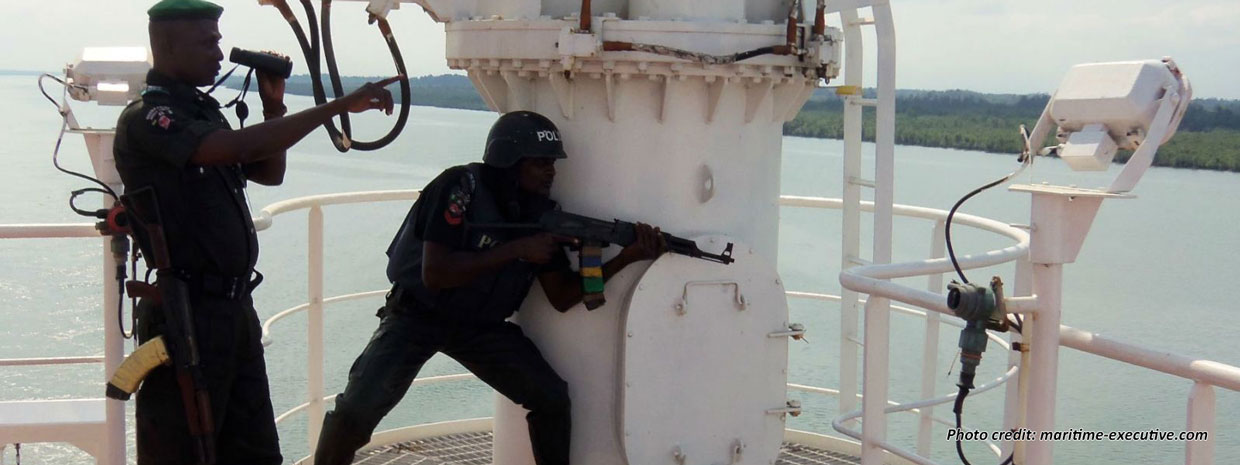Ensuring a safer and secured maritime domain along the Gulf of Guinea has become a great concern for littoral countries bordering this region. Despite the vast deposits of marine resources, the region has become a hotspot for criminal activities at sea including illegal fishing, maritime piracy and armed robbery, drug and human smuggling. The operations of pirates in the region is characterized by high levels of violence and high increased death toll of crew. Indeed, the surge in violent cases have become a cause for concern for states, security analysts and other maritime stakeholders. Certainly, the implications on the cost of sea-based trade cannot be under-estimated as insurers of containers jack up premiums in a region that pursues greater trade relations with the rest of the world through sea-based transport.
Assessments and fact-finding missions conducted by UNODC on the region highlight a deficit in jurisdictional provisions, offence-creating legislation, and judicial capacity of stakeholders needed to undertake prosecutions against piracy. The enablers of these challenges include incoherent legal regimes, ill-equipped maritime law enforcement, weak capacity for gathering maritime information by mandated statutory agencies, and a general lack of sufficient operational capacity and/or readiness to operate effectively with sound Maritime Domain Awareness (MDA).

While these state-level incapacities partly account for ineffective responses, the nature of maritime crimes makes it impossible for any single state to address these threats. Thus, there is the need for promoting collaboration, developing and strengthening existing capacities as well as enhancing responses from military and civil law enforcement actors in keeping with international commitments and evolving regional structures.
In responding to maritime insecurity in the Gulf of Guinea, the UN has passed Resolutions; 2018 (2013) and 2039 (2014) which calls for concerted action to ensure stability in the maritime domain. At the continental level, the African Unions’ Maritime Strategy (AIMS 2050) also provides a broad framework for the protection and sustainable exploitation of the African maritime domain for wealth creation. Further, the ECOWAS Integrated Maritime Strategy (EIMS) emphasizes a people-centric responses to the management and exploitation of the maritime domain. It also emphasizes inter-agency collaboration at all levels and among all actors in the maritime domain. In an effort to further consolidate and harness capacities of littoral states along the Gulf of Guinea, the Yaoundé Architecture processes provides broad outlines, principal among which is the 2013 Yaoundé Code of Conduct. Despite these initiatives, there has been limited progress in curbing maritime crimes in the Gulf of Guinea as weak governance and law enforcement incapacities continues to hinder progress to maritime security in the region.
As part of efforts to enhance maritime security in the Gulf of Guinea, this project seeks to galvanize disparate avenues, channels and options towards a sustained response to the challenges of maritime insecurity in the region. This will be achieved through building technical and institutional capacities, promoting shared understandings and collaborative decision making within the context of managing maritime security threats in the GoG.

